Vaccines have played a transformative role in improving global health. They protect us from serious diseases by leveraging the natural power of the immune system. In this article, we will explore how vaccines work, why they are crucial, and address common misconceptions. By the end, you’ll have a clear understanding of their importance in safeguarding individual and public health.
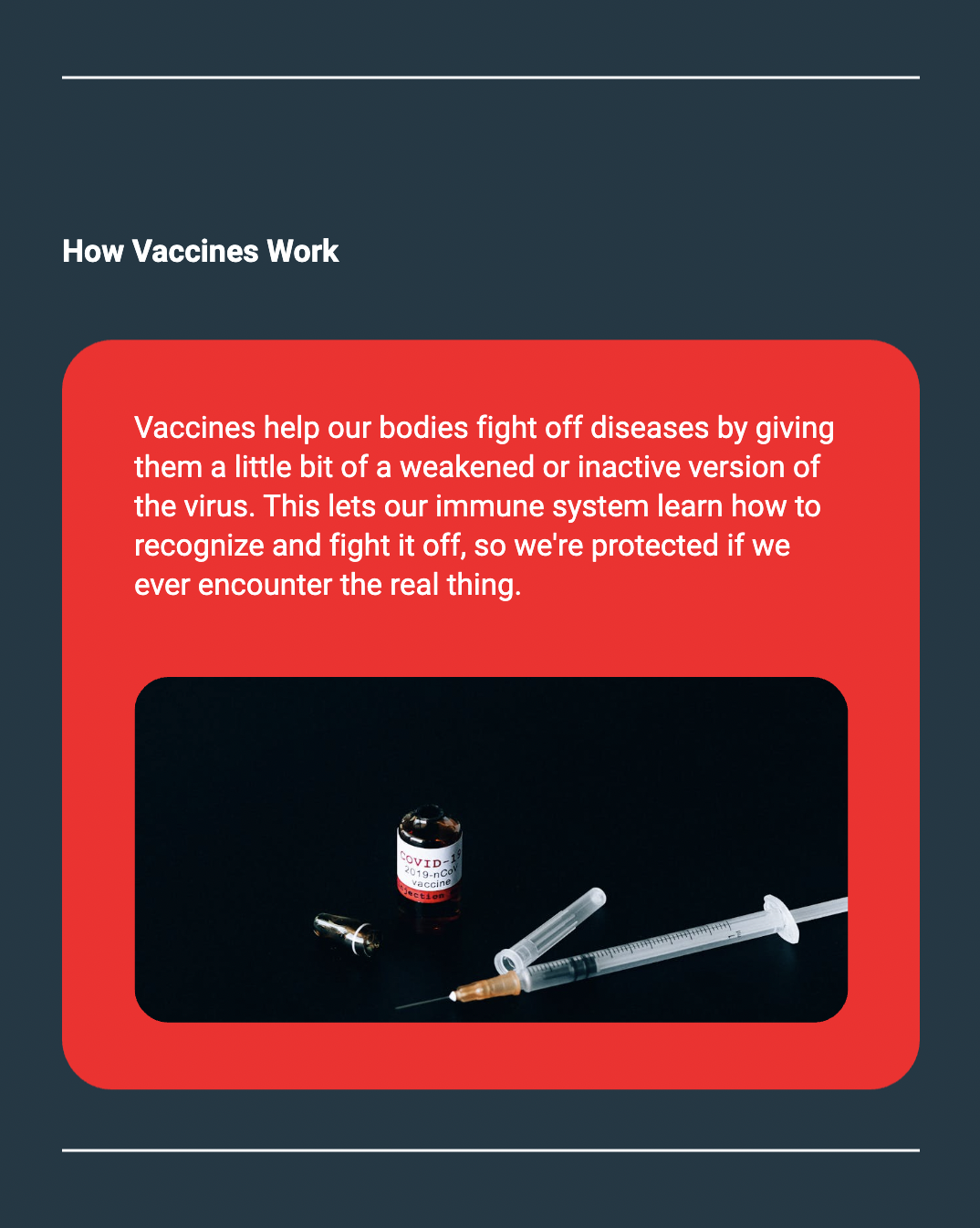
Vaccines are medical preparations designed to stimulate the immune system to recognize and combat pathogens such as bacteria and viruses. They achieve this without causing the full-blown disease, offering protection in a safe and controlled manner.
Vaccines rely on the body’s immune response to protect against diseases. Here’s a closer look at how they achieve this:
The immune system is the body’s natural defense mechanism. When harmful microbes invade, the immune system identifies these invaders and deploys white blood cells to eliminate them.
Vaccines contain weakened, inactivated, or parts of a pathogen. These components act as antigens—foreign substances that trigger an immune response. Upon recognizing these antigens, the immune system produces antibodies, special proteins designed to neutralize the pathogen.
A critical outcome of vaccination is the creation of memory cells. These cells "remember" the pathogen, allowing the immune system to respond swiftly and effectively if the real microbe is encountered in the future.
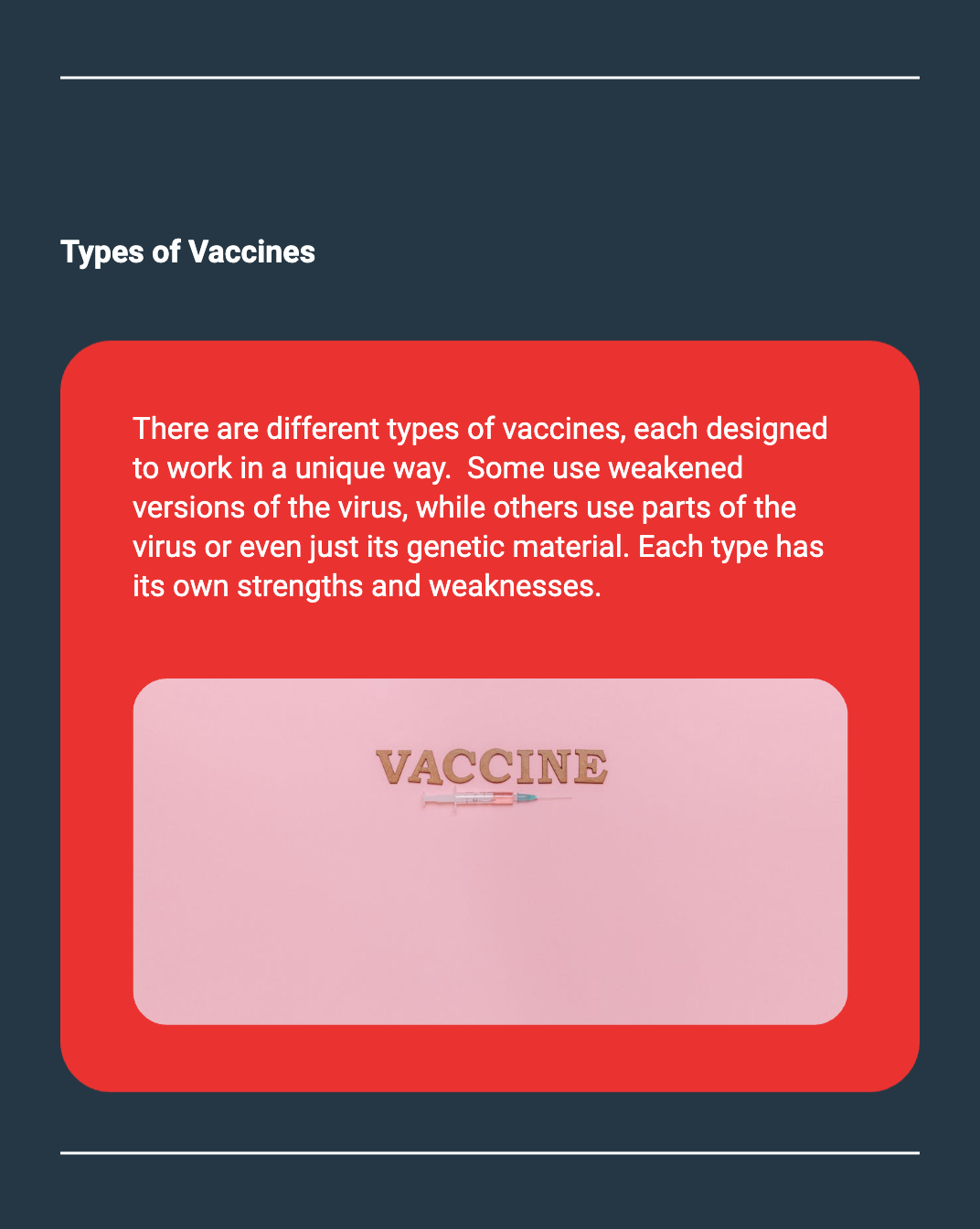
Different types of vaccines are tailored to specific diseases and situations. Let’s break down the major types:
These vaccines use a weakened form of the live pathogen. They provide strong and long-lasting immunity but are unsuitable for people with compromised immune systems.
Examples: Measles, Mumps, and Rubella (MMR) vaccine.
Inactivated vaccines contain killed pathogens, which can’t cause disease but still trigger an immune response. They often require booster shots for prolonged immunity.
Examples: Polio vaccine.
These vaccines include only specific parts of the pathogen, such as its protein or sugar. They are safe and suitable for nearly all populations.
Examples: HPV vaccine, Hepatitis B vaccine.
A groundbreaking innovation, mRNA vaccines teach cells to produce a harmless protein from the pathogen, triggering an immune response.
Examples: COVID-19 vaccines (Pfizer-BioNTech, Moderna).
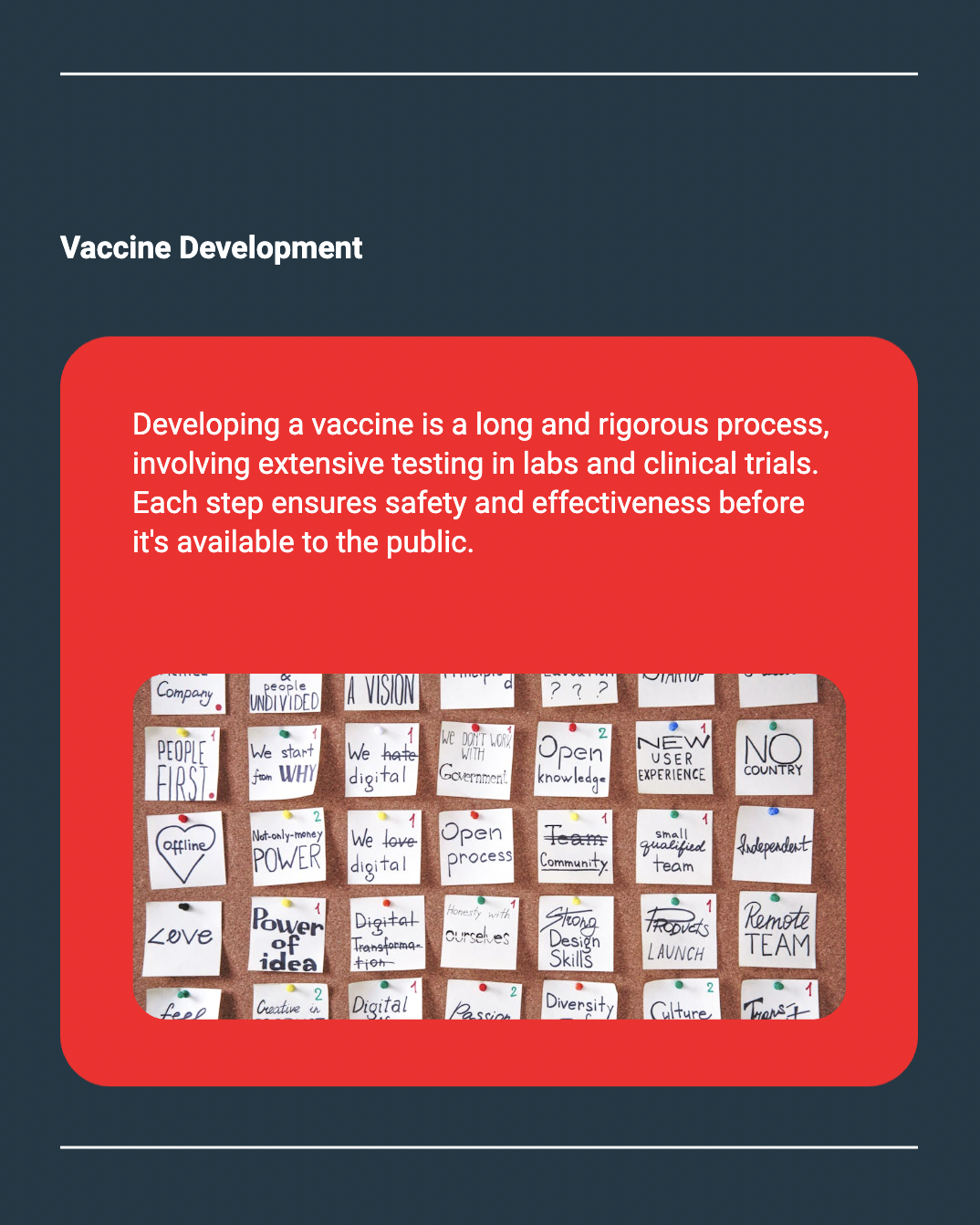
Vaccine development is a meticulous process to ensure safety and effectiveness. It typically involves these phases:
Researchers test vaccine candidates on cells and animals to assess safety and immune response.
Clinical Trials
Clinical trials are conducted in three phases:
Regulatory bodies, such as the FDA or WHO, evaluate the data before approving the vaccine for public use. Once approved, manufacturing ensures a consistent and scalable supply.
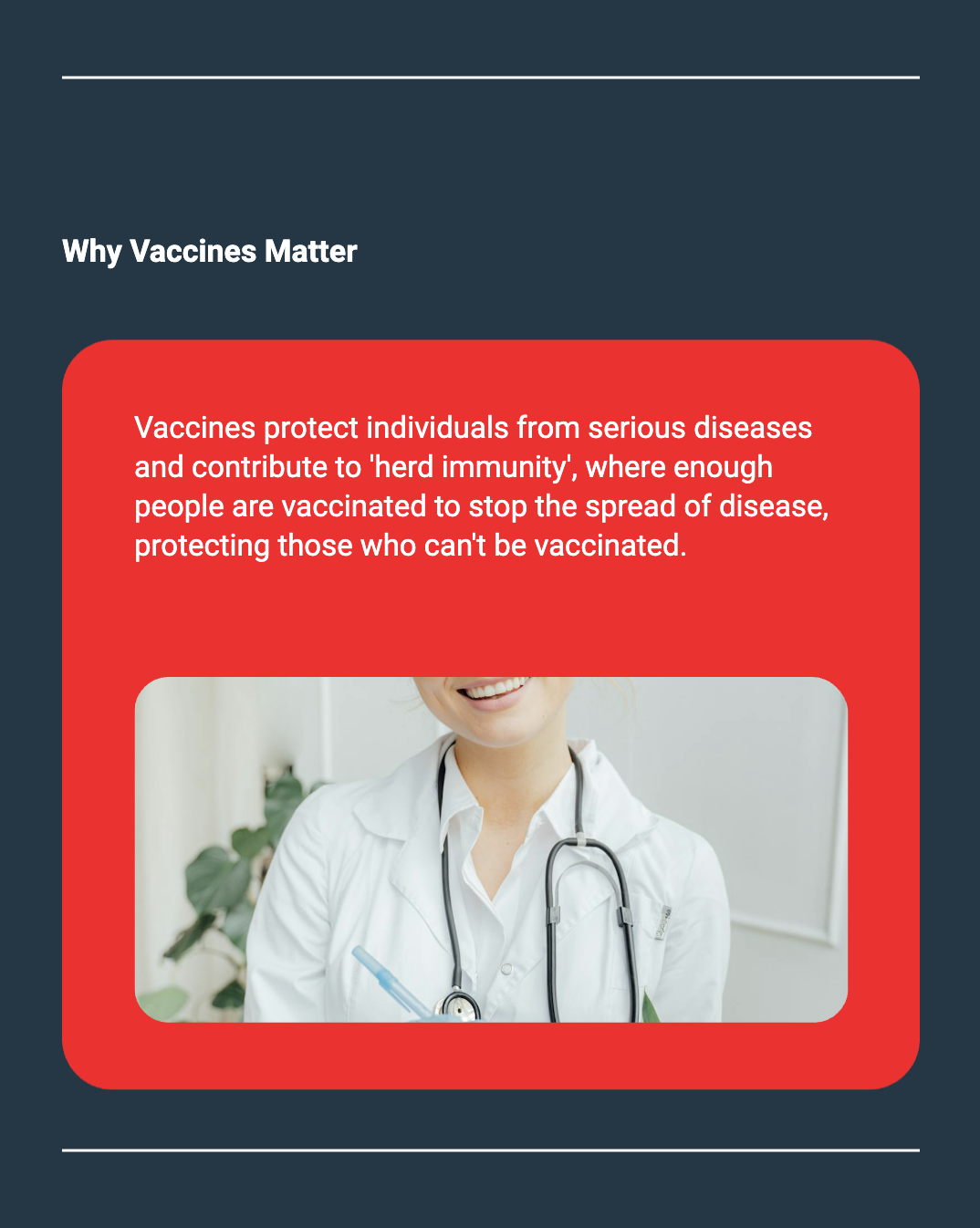
Vaccines protect individuals from severe illness, hospitalization, and death caused by infectious diseases.
When a significant portion of the population is vaccinated, it reduces the overall spread of the disease, protecting those who cannot be vaccinated.
Vaccines reduce healthcare costs, prevent productivity losses, and foster societal well-being by reducing disease outbreaks.
Despite their success, vaccines face numerous myths and misconceptions. Here are some common ones debunked:
This claim stems from a discredited study. Extensive research has shown no link between vaccines and autism.
While natural immunity occurs after infection, it often comes with severe risks. Vaccines provide immunity without exposing individuals to dangerous complications.
Vaccines contain small amounts of safe ingredients, such as preservatives and stabilizers, which are rigorously tested to ensure safety.
Vaccines have eradicated or controlled many deadly diseases. For example:
Vaccines undergo years of testing before approval. Post-approval monitoring ensures continued safety.
Most vaccine side effects are mild and temporary, such as soreness or fever. Severe reactions are extremely rare.
Governments and organizations have systems like VAERS (Vaccine Adverse Event Reporting System) to track and investigate rare complications.
Reliable information about vaccines is key to making informed decisions. Trusted sources include:
Vaccines are a cornerstone of modern medicine, offering a safe and effective way to prevent life-threatening diseases. By understanding how they work and their immense benefits, we can appreciate their role in protecting individual and global health. Vaccination not only shields you but also safeguards your community, paving the way for a healthier future.
Vaccines prevent infections by stimulating the immune system, while antibiotics treat bacterial infections after they occur.
Vaccines may offer varying levels of protection against different variants, but they generally reduce severe illness and hospitalization.
It depends on the vaccine. Some require a single dose, while others need boosters for prolonged immunity.
Many vaccines are safe during pregnancy. Consult your healthcare provider for guidance specific to your situation.
Speak with your doctor. In most cases, you can resume the schedule without restarting the series.
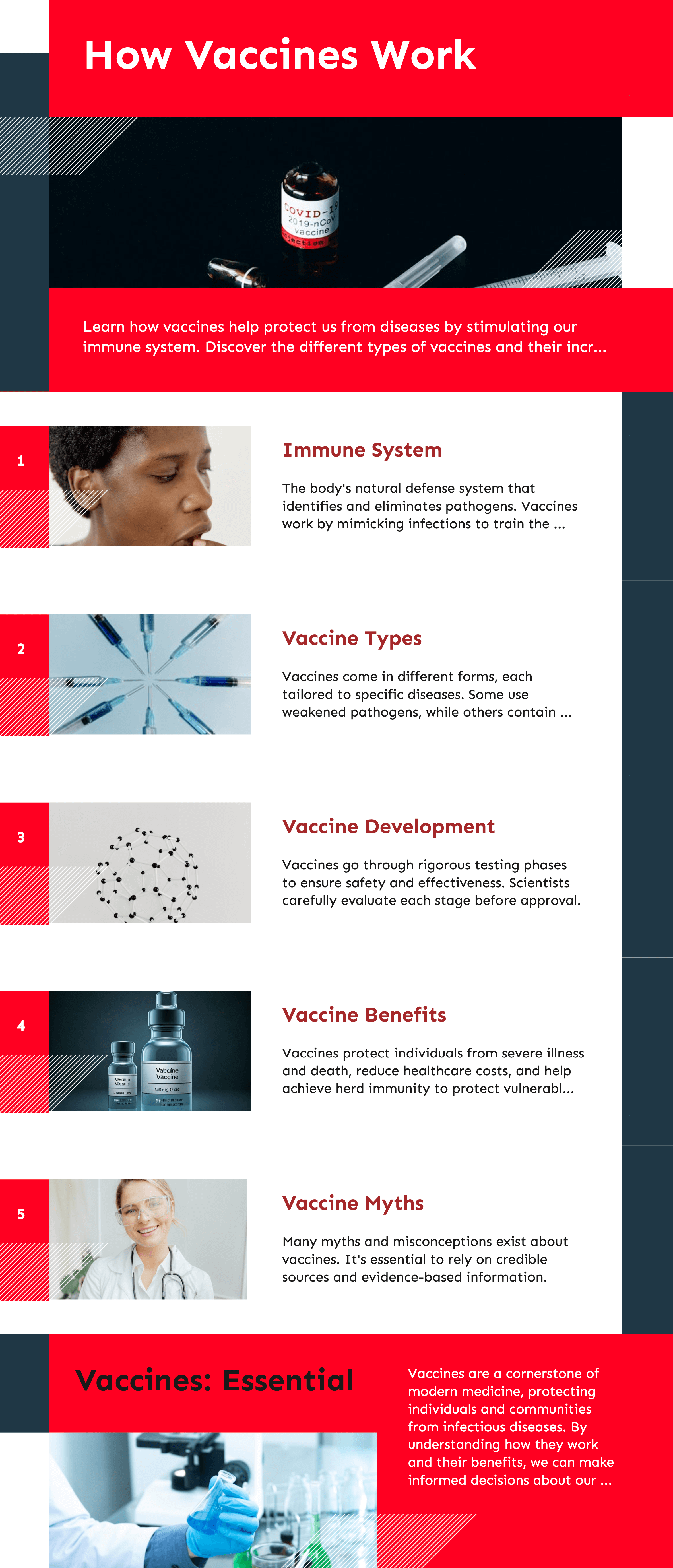 20.12.2024
20.12.2024